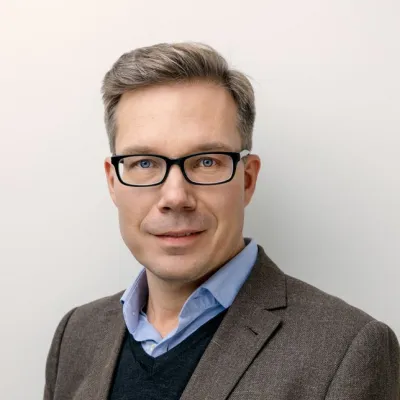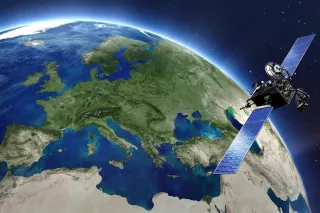VTT is participating in Europe’s first industrial project to develop components and their fabrication technologies for quantum computers. The project focuses on superconducting device technologies, which provides one of the most promising technology platforms for the realization of quantum computers.
The MATQu -project advances quantum processor component technology and creates an application oriented industrial value chain in Europe. The project involves actors from equipment manufacturers and material developers all the way to application developers.
"There is much to be developed in quantum computing in all segments of the value chain and, especially, in the field of components. Quanta are quite picky and require, for example, such an ultra-high performance that the current commercial microelectronics cannot yet provide," points out Professor Mika Prunnila from VTT.
Aiming to bring quantum computers to an industrial setting
The construction of quantum computers has taken major leaps in this millennium, mainly by inventive groups of university researchers. In addition, the largest IT companies have set up their own research groups and have also demonstrated proof-of-concept quantum processors. The results have been successful, but so far only on a small scale. The new project brings together European research centers and various companies in an effort to advance previous findings on a larger scale and in an industrial setting. Achieving this requires both extensive co-operation and development of completely new technological solutions.
One of the primary goals of the industrial environment is to be stable as well as to enable the construction of large-scale quantum computers in the future. Quantum computers are expected to be important tools in solving some of the grand challenges of our times. For example, accurate modeling of chemical compounds with existing computers is not possible, while sufficiently large quantum computers would be well suited for the task.
"Through chemistry, significant impact on everyday life will be created, for example, in the form of advanced medicine. To achieve this, however, significantly larger quantum processors than what have been built so far are needed," estimates Joonas Govenius, Team leader at VTT.
There is a cluster of know-how in Finland
VTT works in the project alongside the large European research centers. Finland has a strong ecosystem of research teams and experts around superconducting circuits and their fabrication technologies. VTT has been developing commercial devices using superconducting technology since the 1980s. Although these previous products have not been directly related to quantum computers, there are many similarities at the level of individual components. This, together with the long-term scientific research conducted in Finland, largely explains VTT’s state-of-the-art technology for superconducting circuits. VTT's main contribution in MATQu is in the development of quantum bits, i.e., qubits. A quantum computer performs its computations using qubits.
"VTT's superconducting device expertise has previously been in demand, especially, in various sensor applications such as brain activity mapping and security screening. Now, with the rise of quantum technology, the demand for this know-how has risen to a whole new level," says Prunnila.
In the project, VTT is also leading an effort to create new and improve the existing methods for testing quantum computer components. The MATQu-project began in June 2021 and will continue until 2024. The total budget for this partly EU-funded project is almost € 22 million. There are also national financiers in the project. Business Finland is the joint national financier for the Finnish sub-consortium of MATQu. In addition to VTT, the Finnish sub-consortium involves IQM, a company focusing on building quantum computers, and Beneq Oy, an atomic layer deposition technology company.
You can find more information from the project’s web page and press release.





